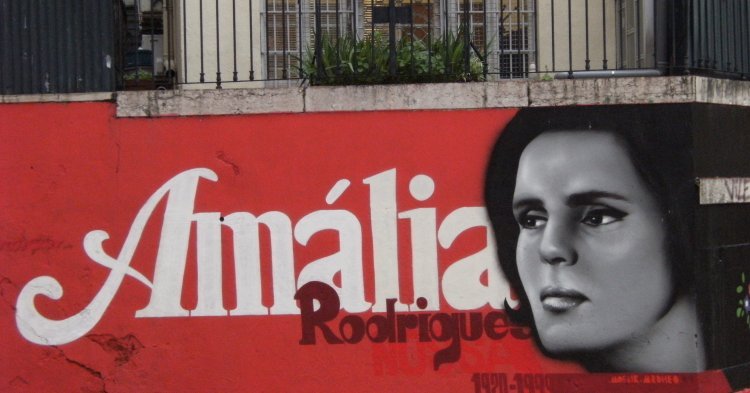Amália Rodrigues (1 July 1920 – 6 October 1999) was a Portuguese singer known as ’Rainha do Fado’ (“Queen of Fado”). Fado, meaning “fate” in Portuguese, is a music genre that owes much of its international success to Rodrigues.
Born in Lisbon, Amália grew up in a poor family and started singing when she was around 15 years old. At 19, she began singing Fado professionally. This was only the beginning of a career that would, one day, go international. In 1943, Rodrigues gave her first concert abroad, in the Portuguese Embassy in Madrid. In the years to follow, she sang in many countries, like France, Italy, Japan, the Netherlands, Belgium, Germany, Brazil, Argentina, Israel, the USA, the USSR, and Mexico.
Before the revolution, Rodrigues was a financial contributor to the Portuguese Communist Party and to the resistance. However, because of her letters to Salazar and the regime’s promotion of Amália’s music, she was falsely accused of being an agent of the secret police.
After much success in the Portuguese music industry, Rodrigues died in 1999 at the age of 79, in Lisbon. The government declared a three-day-long national mourning and Rodrigues was buried in the National Pantheon, along with other great Portuguese personalities.
To this day, she remains the best-selling Portuguese artist in history.


Follow the comments: |
|
